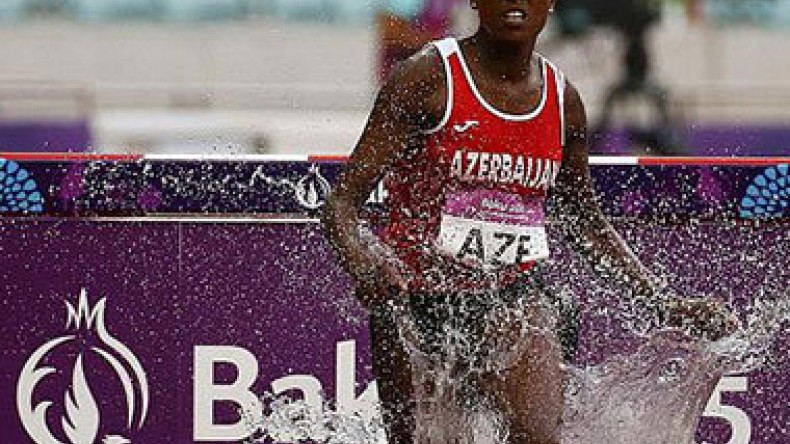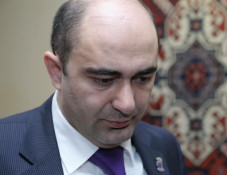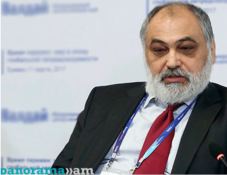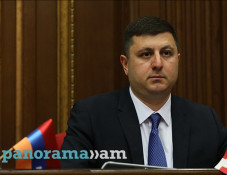
Games in Baku: Azerbaijani athlete fails doping test and British team complains of judges
A spectacular fire show signaled the end of the inaugural European Games in Baku on Sunday night, but questions over the legacy of both the Games itself and the host city as a sporting hub will smoulder long after the lights have dimmed, The Daily Mail writes.
The Games were overshadowed by significant human rights concerns as well as censorship issues that denied a number of leading media outlets the right to enter Azerbaijan to report during the Games, according to the Daily Mail.
Turan information agency writes that the Minister of Youth and Sports of Azerbaijan, Azad Rahimov, said the closing ceremony of the games cost 140 million manats of the state budget. The Minister told the information agency TASS that the entire budget of the games, including the unforeseen expenditures, stood at 1.174 billion manats ($1.12 billion). The total expenses of the opening and closing ceremonies cost 240 million manats: 100 million for the opening ceremony and 140 million for the closing.
The Washington Post writes that the choice of Azerbaijan as host was always controversial, with the country’s human rights record coming under close scrutiny.
The Belorussian information agency Belorus Segodnya (Belarus Today) writes that ahead of the European Games the hosts naturalized 90 foreigners, which is almost one third of the total bid, to rise as high as possible in the medal standings. Azerbaijan naturalized 33 athletes from Russia; among other countries were Jamaica, Cuba, Iran, the US, Ethiopia, Brazil and Belarus. The Belarussian athlete Olga Panarina was among those who left for Azerbaijan. The world champion went to the Europe championship 2014 in a new Azerbaijani uniform and surname – Ismayilova. Turan agency notes that the foreign “legionnaires” won 23 medals out of the 58 medals Azerbaijan has.
The Azerbaijani news outlet 1news.az reports that the Azerbaijani steeplechase runner Chaltu Beji failed the doping test. Citing the official website of the Games Organizing Committee, Sportbox.az reports that osterine was found in her blood. The double test confirmed the finding. As a result, she was suspended from the competition. The laboratory analyses was conducted in Moscow. She got the first place in 3,000m steeplechase, and the seventh place in the 1500m.
According to the Daily Mail, Beji became the second athlete to fail a drugs test at the European Games in Baku, which was announced by the European Olympic Committees on Saturday.
The Sunderland Echo reports that the British boxer from Sunderland, Josh Kelly, lost the semifinals to the Azerbaijani Parviz Bagirov on a unanimous verdict of the judges in the European Games in Baku. “I’m happy and sad at the same time,” the boxer’s father and coach Paul Kelly said. “To win bronze is a brilliant achievement and massive experience. But I’m sad that it could have been totally different if the judging had been fair and I’m not sure it was.” You could see when the camera panned over the blue corner, the coaches were reading the riot act to Baghirov, but he still got the round from the judges even though he was outboxed, he added.
The Irish Times notes that the average daily spectator attendance during the second week, across all the venues, was under 20,000. Therefore, there have been many empty seats. Ironically, the only events to actually sell out were the opening and closing ceremonies – and they were not about the sport at all, only a very expensive Azerbaijani salute to themselves.
Ahead of the closing ceremony, Amnesty International issued a statement saying Azerbaijan must immediately and unconditionally release all government critics unfairly imprisoned if the European Games are to leave a positive legacy.
“What started as a domestic crackdown on dissent ahead of the Games became an orchestrated attempt to evade all international scrutiny as international media and NGOs were banned,” said Denis Krivosheev, Amnesty International’s Deputy Program Director for Europe and Central Asia. “The only way to reverse what looks set to be a seriously tainted legacy of these Games is for the authorities to stop the crackdown on independent NGOs, allow freedom of expression and immediately and unconditionally release government critics imprisoned on false charges. International, European and National Olympic committees must also end their deafening silence on the human rights crackdown around the Games and add their voices to those who have spoken out for change.”
The Women's International Perspective issued an article writing that as the close of the European Games drew near, the question What will happen to Leyla Yunus remained. Leyla Yunus has served as the president and director of the Azerbaijan Institute for Peace and Democracy (IPD). She was one of the many human rights defenders and activists detained and imprisoned in Azerbaijan in advance of Baku 2015. In the recent years, she began working closely with fellow Azerbaijan activist Rasul Jafarov, compiling a list of prisoners of consciousness being held in Azerbaijan. This project was nearing completion when, in April of 2014, Yunus and her husband were about to board a flight to Qatar when they were detained. Although unable to travel outside of the country, Yunus persevered with her work and wrote a letter to the European Olympic Committee (EOC) on July 29, 2014. “Holding the first in the history European Olympic Games in the modern Azerbaijan, not only contradicts the ideas of peace, humanity, humanism of law triumph and justice,” she bravely stated.
According to the Deutsche Welle, Reporters Without Borders (RWB) reported on Friday that Azerbaijani Youth and Sport Minister Azad Rahimov accused the journalist Emin Milli of running a smear campaign against the country and threatened that the regime would catch him - whether in Germany or elsewhere. Milli has criticized the Azerbaijani government's human rights record - including in several recent interviews with German media.
"We are stunned that a member of Azerbaijan's government issues such threats against the journalist Emin Milli, who is living in Germany," the German RWB managing director Christian Mihr said. According to RWB, Milli spent 16 months in an Azerbaijani prison for his critical views, beginning in 2009. He subsequently moved to Germany.
On 12-28 June, Baku hosted the first European Games under the auspices of the European Olympic Committee. According to media estimates, the Games cost the Azerbaijani population $10 billion. They became a serious headache for the locals with numerous bans and property demolitions. The preparatory works for the Games were accompanied not only by numerous reports about “bugs” and accidents, but also crackdowns and brutal repressions against dissent.
Related:
European Games without Europe: Leaders of Western European countries disregard opening ceremony of Games in Baku
British European Games worker killed in road crash in Azerbaijan
Media: Half-naked female athletes and pagan symbolism in Baku European Games outrage Muslims, expected tourists fail to arrive
Newsfeed
Videos






























